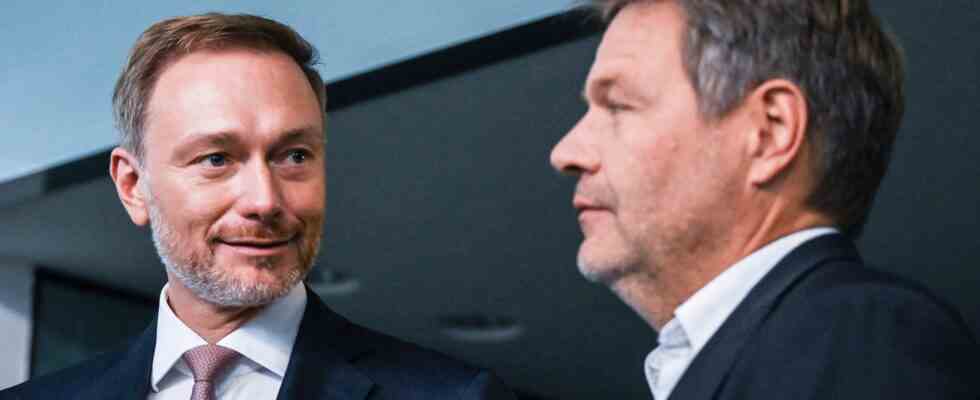analysis
Status: 18.10.2022 6:00 p.m
The chancellor’s nuclear power plant is a stress test for the Greens. And while the Greens are struggling with a perceived defeat, the FDP is celebrating itself. Why actually?
On this day after the power word-Wumms, Green faction leader Britta Haßelmann can be seen how much this Wumms affects her. The fact that the chancellor has the authority to set guidelines means a real stress test for the Greens. Your reaction to the Chancellor’s letter is correspondingly cautious.
Scholz wrote down a lot of green things: Above all, the end of nuclear power in mid-April 2023 – as decided by the Green Party Congress. And an early end for coal, 2030 instead of 2038. Nevertheless, frustration prevails: The Emsland nuclear power plant should also run longer than planned – three and a half months. It’s only 15 weeks, you might think.
But for Haßelmann and many others in the party, it’s not just about a few weeks, it’s about their identity – about the green DNA. Therefore, the joy is limited. Green Environment Minister Steffi Lemke was the first to catch herself and tweeted: “The phase-out of nuclear energy will remain the same. There will be no lifetime extension and no new fuel rods.”
The FDP celebrates itself
At this point, the FDP had long since celebrated itself and sold the chancellor’s decision as their success. The FDP, they think, has prevailed. The two-year runtime extension they requested only turned into 15 weeks of stretching operations. But Christian Lindner wouldn’t be Christian Lindner if he sold it as a defeat. After all, he has suffered enough defeats in the past, he needs success.
But for whom is this decision a success? Certainly not for the three-party coalition that wanted to do everything better. They stand like a fractious bunch who have spent a lot of time pondering the future of three nuclear power plants. Gone are the days of selfies and a “culture of respect”, as stated in the coalition agreement.
A picture from days gone by. Now the three-party coalition has to pull itself together again.
Scholz watched for a long time
In the SPD they hope that the issue of nuclear power has now been settled and that the FDP will not bring it up again in search of a profile. And the Social Democrats are probably also happy that the performance of their own people has slipped somewhat out of the focus of criticism. Who still talks about Christine Lambrecht’s alleged mistakes today? Even Karl Lauterbach went under in the nuclear power dispute.
The Social Democrats simply let the others argue and didn’t position themselves at all. Olaf Scholz was also silent for a long time – watched as Ministers Habeck and Lindner worked on each other. The morning after the supposed word of power, he asked them separately to the chancellery before they all went about their business.
An agreed word of power?
In the Greens group, Britta Haßelmann now has to campaign for approval – for a compromise that she feels is a defeat. However, a no by the Greens would have significant consequences: the traffic light coalition would be over. After almost a year in office and in the middle of several major crises. Unthinkable in these times. So the Greens will act responsibly and agree in the group – not all, but most.
And what remains? The theory of an agreed power word is circulating. Habeck and Lindner could not only have known, but actually agreed with Scholz as well. After the party congress, Habeck finally had no more leeway for a compromise. But as it is, he can refer to the chancellor and his word of power.

